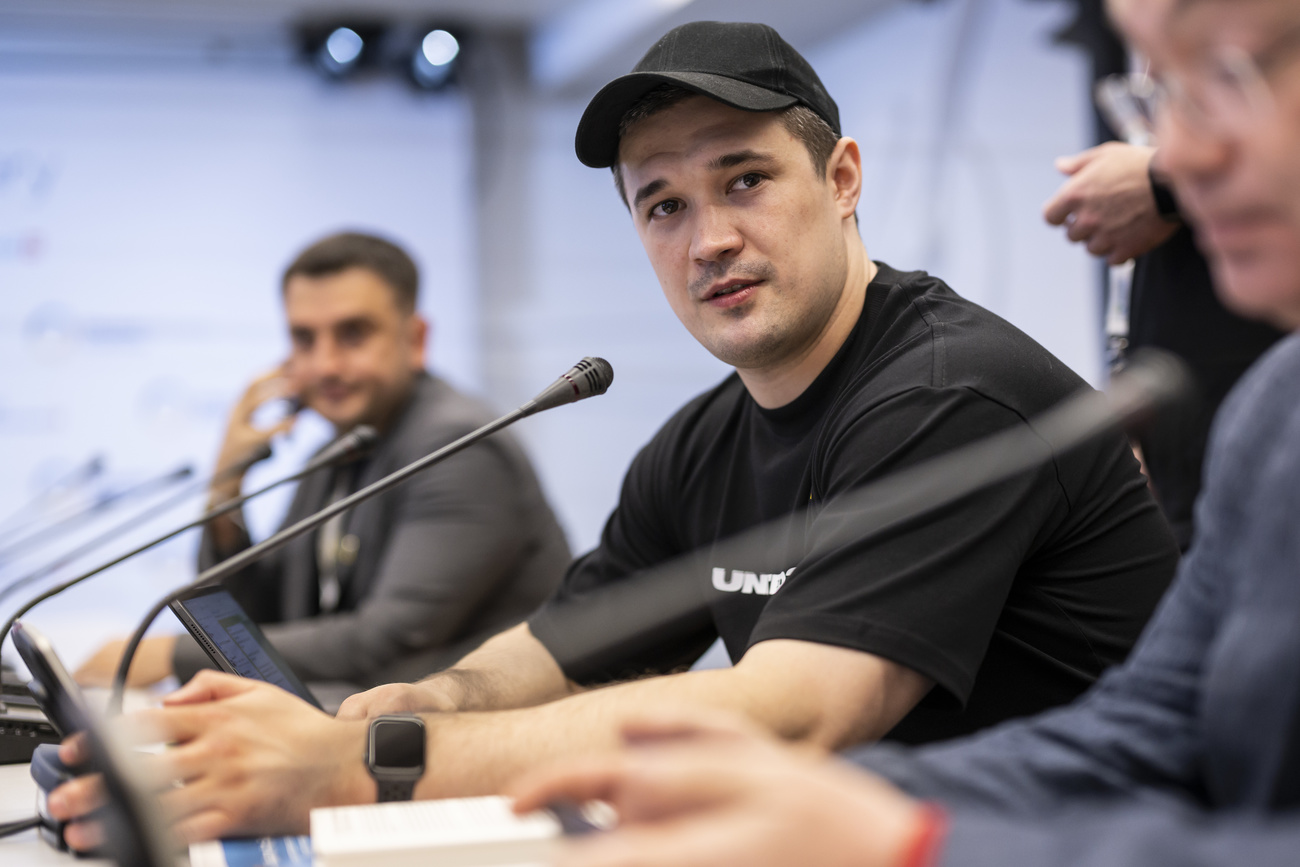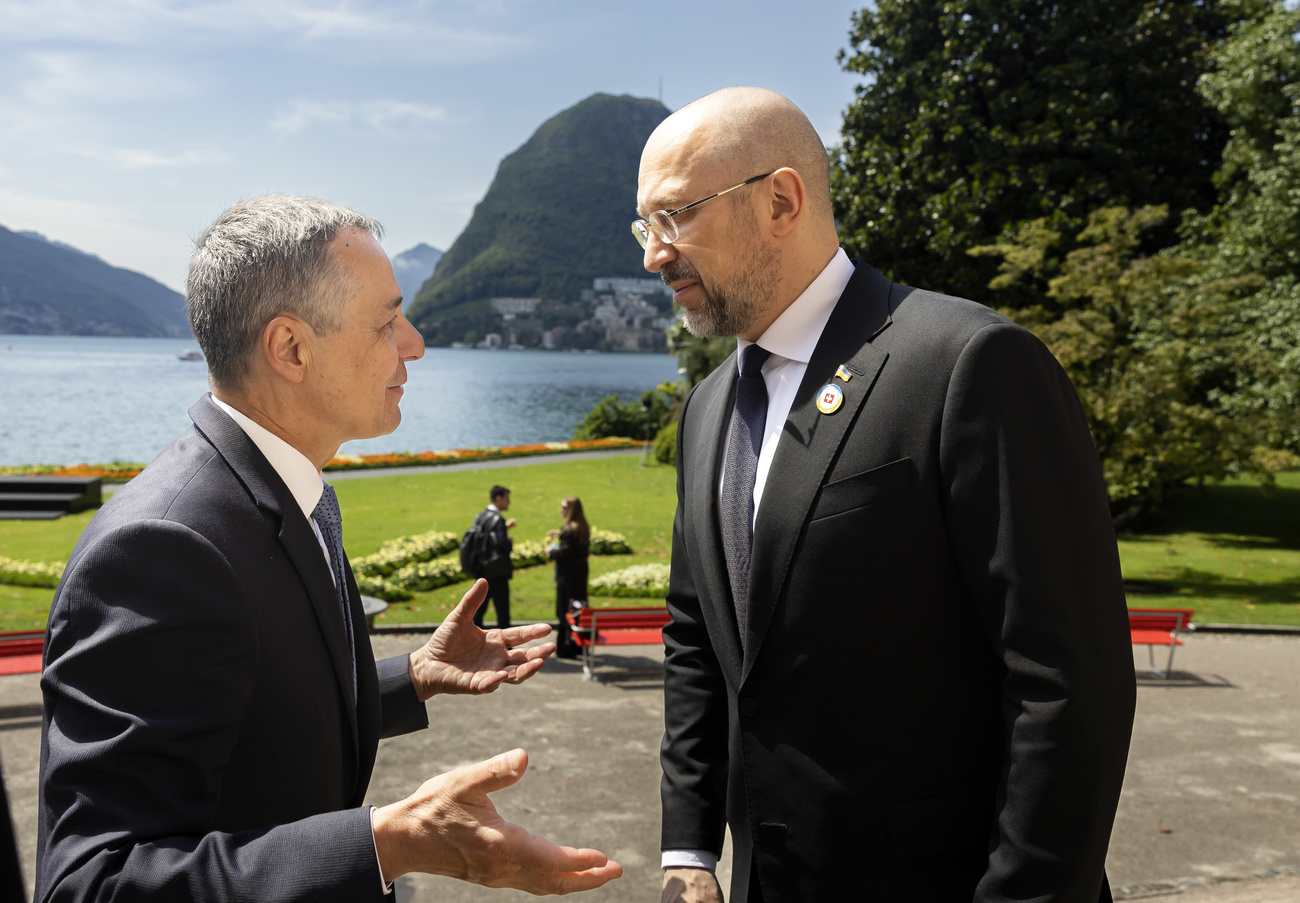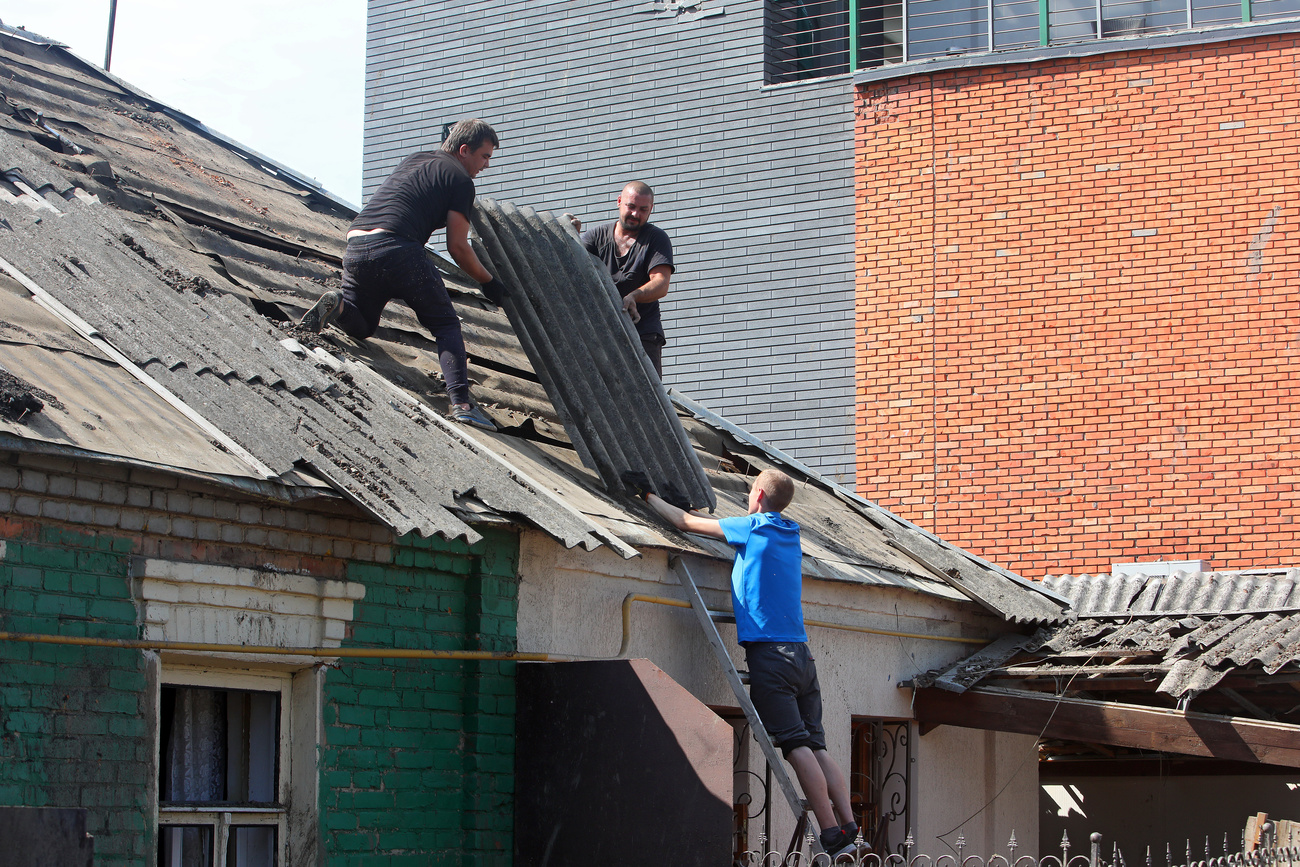Mykhailo Fedorov: A digital Marshall Plan for Ukraine

Ukraine’s reconstruction must also involve digitalizing state institutions, says its Digital Minister Mykhailo Fedorov at the Ukraine Recovery Conference in Lugano.
Digitalisation is one of the buzzwords that has established itself as part of the vocabulary of modern politicians. The Russian invasion of Ukraine has showed how digital tools – from cyber warfare to military technology – can be used in the case of war.
Although many expected the Ukrainian government to collapse after the Russian army invaded, four months later the government is still in place. “And we are continuing to digitize our administration despite the fighting.”
That was the message from Mykhailo Fedorov, Ukraine’s Minister of Digital Transformation, while speaking about the challenges facing his ministry at the Ukraine Recovery Conference. The 31-year-old was part of Ukraine’s delegation in Lugano – the largest to have travelled abroad since the invasion in February.
He conveyed his message in the same way Ukrainian authourities have communicated since the beginning of the war: hip, optimistic, and digitally connected. His presentation could easily pass as a Ted Talk and shows why Ukraine is winning the propaganda battle, at least in the West.
The media power of Ukraine
This success is thanks in large part to tech champions like Fedorov: The former IT entrepreneur has been a friend of Ukrainian President Volodymyr Zelensky for many years. People like him have been behind the growth of the tech industry in Ukraine in recent years.
Fedorov also uses social media shrewdly: He used it to pressure Western tech companies to withdraw from Russia – with some success: Apple, Google and Meta have left Russia. It was Fedorov who called on Elon Musk via Twitter to secure Ukraine’s internet connection via his Starlink satellite network. Musk delivered: In some cases, internet connections are now faster than before the invasion.
@elonmuskExternal link, while you try to colonize Mars — Russia try to occupy Ukraine! While your rockets successfully land from space — Russian rockets attack Ukrainian civil people! We ask you to provide Ukraine with Starlink stations and to address sane Russians to stand.
— Mykhailo Fedorov (@FedorovMykhailo) February 26, 2022External link
Fedorov has been responsible for the Ukrainian government’s digital flagship programme since 2019: the e-government app Diia. By 2024, all government services should be accessible via smartphone.
The ambitious project had to be adapted to the demands of the war. Already starting in 2014, internally displaced people from Donbass and Crimea were able to register their property in the occupied territories and register their newborns as citizens from the regions.
Some of Ukraine’s neighboring countries have recently accepted the digital IDs of refugees who lost their documents in the turmoil of war at border crossings and registration. Ukraine is the first country to make full use of electronic ID.
Fedorov’s ministry also plays an important role in raising funds. Using the United24 platform,External link for example, fundraising was started to procure military and medical supplies. The country needed money as exports fell by half in March and April compared to the same period last year, and spending on defense and rebuilding damaged infrastructure rose rapidly.
Last Friday, we announced the Army of Drones project, and the next day you sent us your first ‘birds.’ You are amazing Just as there’s no such thing as an insignificant donation to #united24External link, there’ll be no insignificant ‘recruits’ for our Army of Drones #dronateExternal link pic.twitter.com/bbMqAxi4iLExternal link
— U24 (@U24_gov_ua) July 3, 2022External link
The switch to focus on war priorities was quick: the Diia app now streams news, sends alarm messages, and allows citizens to register damage to their homes or sign up for financial help. Even the payment is made via the app.
In addition, civilians can use a chatbot to upload footage of Russian troop movements, which is apparently a high-quality source of information for the Ukrainian military. Fedorov also spoke proudly of an “IT army”, consisting of volunteers, who help ward off Russian cyberattacks and hacked websites of Russian authorities.
The ‘most digital state’ in the world
In Lugano, Fedorov presented the Digital4Freedom initiative, which has nothing less than the goal of making Ukraine the “most digital state” within three years. The minister spoke of a digital Marshall plan that was needed to restore the bombed-out infrastructure in his country and take it to the next level in the tech world.
One sign of support offered at the conference in Lugano was the signing of a memorandum by Fedorov with three Ukrainian telecommunications companies in which they pledged $13 million for digital reconstruction. “A first vote of confidence, which is important beyond our borders,” he said.
Western companies should also play a role in giving Ukraine a technological boost – and help relocate jobs to the country in the future. The government and big tech are to be closely interlinked in the future. “We want to turn Ukraine into a European Israel,” he told journalists.
So, here we go: presented the digital initiative Digital4Freedom in Lugano, #URC2022External link. This is our offer to big tech companies to join the rebuild of Ukraine within UNITED24. Our digital lend-lease program. The most digital country in the world: in progress. pic.twitter.com/mY5G6Biwk3External link
— Mykhailo Fedorov (@FedorovMykhailo) July 4, 2022External link
The role of Switzerland
It’s perhaps no coincidence that the kick-off of the digital Marshall Plan took place in Lugano. As part of its cooperation with Eastern Europe, Switzerland was involved in Ukraine early on, in peacebuilding and decentralisaion reforms. But also specifically in the field of digitalisation: various e-government projects should make it easier for the population to access information and fight corruption, two long-standing problems in Ukraine.
“In certain areas we are digitally ahead of Switzerland,” said Fedorov, for example in government administration. But there is still much to learn from others, such as when it comes to digital financial instruments or e-democracy. The visit was a good opportunity for him to make contacts in this regard.
Many of the 1,000 participants at the conference were from business and tech sectors. The young minister is not stingy with superlatives when he describes his country’s digital future. The country is afterall still in the middle of a costly war of attrition that is tying up many resources. But, at least he has a plan – and every confidence that it will get him through the war.

In compliance with the JTI standards
More: SWI swissinfo.ch certified by the Journalism Trust Initiative












You can find an overview of ongoing debates with our journalists here . Please join us!
If you want to start a conversation about a topic raised in this article or want to report factual errors, email us at english@swissinfo.ch.